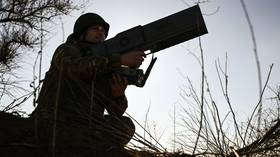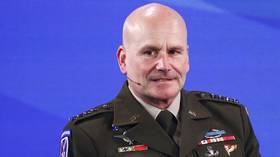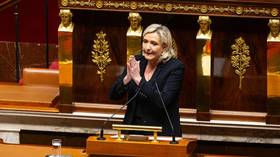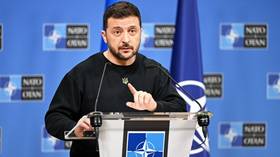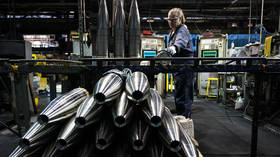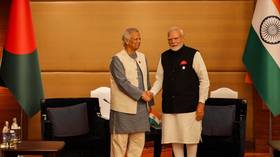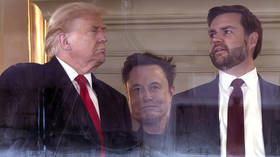Build-up of Georgian troops on Abkhazia border causes concern
Georgia's breakaway republic of Abkhazia says it will take retaliatory measures unless Tbilisi removes troops that are reportedly building up on its border. The de-facto leader of Abkhazia, Sergey Bagapsh, says he’s seriously concerned about information o
Earlier, Georgia's president Mikhail Saakashvili demanded Russia reconsiders strengthening links with Abkhazia and Georgia’s other breakaway region, South Ossetia, calling the act a threat to the sovereignty of his country.
“We demand that Russia reconsiders all decisions that violate the sovereignty of Georgia. Meanwhile, our efforts will be directed at mobilising the international community,” said Saakashvili.
On Wednesday, Russia said it would work with the de-facto authorities in Abkhazia and South Ossetia, to help Russian citizens living there. The announcement came after President Putin instructed the Russian government to strengthen ties with the regions.
However, Russia maintains that the co-operation is aimed at simply bringing stability to the region and not about stirring tensions with Tbilisi.
Abkhazia and South Ossetia declared independence from Georgia in the early 90s, but remain unrecognised internationally.
Meanwhile, residents of Abkhazia, most of who have Russian citizenship, say they welcome the prospect of closer links with Moscow.
The majority of the populations of these republics voted for independence at referendums. Although they are still not recognised by Russia, or any other members of the international community, locals say Putin’s latest initiative means a lot to them.
The Abkhazians speak Russian to each other most of the time. They watch Russian TV shows and the only currency accepted there is the rouble.
In the early 1990s Abkhazia proclaimed independence from mainland Georgia, parting from the former Soviet republic.
It was originally Joseph Stalin’s decision to put Abkhazia under Tbilisi’s jurisdiction, but after the fall of the USSR, the Abkhazians felt they would be better off without Georgia altogether.
Georgia showed its opposition by sending in tanks and armed troops. A violent conflict erupted, resulting in 250,000 ethnic Georgians fleeing their homes. Only Russian peacekeepers together with the UN observers managed to put an end to the violence. They are still stationed in the Gali region of Abkhazia.
Georgian efforts to convince Abkhazians to stick with Tbilisi have so far failed. The majority of Abkhazians voted for independence in a recent referendum. The authorities see Russia’s move as another step on the road to independence.
“We have a special dream and certainly every positive move is being taken as a step towards it,” said Sergey Shamba, Abkhazia’s Foreign Minister.




